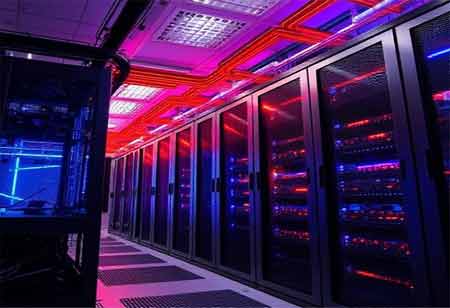THANK YOU FOR SUBSCRIBING
The Role of AI in Optimizing Data Center Cooling Efficiency
AI is crucial for optimizing APAC data center cooling, which is driven by rising demand and climate challenges. It enables predictive cooling, resource allocation, and maintenance, enhancing efficiency and sustainability.

By
Apac CIOOutlook | Thursday, June 05, 2025
Stay ahead of the industry with exclusive feature stories on the top companies, expert insights and the latest news delivered straight to your inbox. Subscribe today.
Fremont, CA: The Asia-Pacific (APAC) region is experiencing explosive growth in data center demand, driven by factors like increasing digitalization, the rise of AI, and the expansion of cloud computing. This surge in AI-driven workloads is fueling the expansion of data centers, which generate substantial heat. However, this growth comes with a significant challenge: managing the immense energy consumption, particularly for cooling.
Climate Challenges and Sustainability Imperatives
Many parts of APAC are characterized by hot and humid climates, which exacerbate the complexities of data center cooling. Traditional cooling methods often prove inefficient and energy-intensive in such conditions, leading to increased operational costs and environmental impact. Data center operators face mounting pressure to minimize their carbon footprint by reducing energy consumption and adopting sustainable cooling technologies. As the region continues its digital transformation, innovative solutions must balance technological growth with environmental responsibility.
AI-Powered Cooling Optimization
Artificial intelligence is pivotal in optimizing data center cooling through several key mechanisms. To anticipate cooling demands, AI-driven predictive cooling systems analyze vast datasets, including temperature, humidity, and equipment usage. By enabling proactive adjustments rather than reactive responses, AI enhances efficiency while reducing energy consumption. Machine learning algorithms refine this process by identifying patterns that human operators might overlook, ensuring precise and adaptive cooling management.
Another crucial aspect is resource allocation, where AI optimizes real-time cooling distribution by directing cooling precisely where it is needed most. This prevents overcooling, minimizes energy waste, and improves overall operational efficiency. AI-driven systems can adjust fan speeds, chiller operations, and airflow patterns based on real-time data, ensuring a balanced and efficient cooling strategy.
Moreover, predictive maintenance powered by AI helps detect potential cooling equipment failures before they occur. By analyzing sensor data for anomalies, AI enables timely repairs, preventing costly downtime and mitigating energy inefficiencies. This ensures system reliability and reduces the risk of unexpected failures that could lead to significant energy spikes.
Lastly, AI enhances cooling efficiency by analyzing temperature data, airflow patterns, and equipment performance. AI systems can dynamically adjust cooling output to maximize performance while minimizing energy use by identifying hot spots and areas of inefficient air circulation.
Key Trends and Emerging Technologies
As APAC adapts to the evolving demands of AI-driven data centers, several innovative cooling technologies are gaining traction. Liquid cooling is becoming increasingly relevant due to the rising heat density of AI workloads. Technologies such as direct-to-chip and immersion cooling are gaining adoption, with AI playing a crucial role in optimizing their management and control. These methods offer significant efficiency improvements over traditional air cooling solutions.
The rise of edge computing is also reshaping data center cooling strategies. By processing data closer to the source, edge data centers alleviate the burden on centralized facilities, reducing overall cooling demands. AI further enhances this process by optimizing workload distribution between central and edge data centers, ensuring efficient resource utilization and cooling balance.
Furthermore, sustainability initiatives are driving the integration of AI-powered solutions in data centers. The increasing focus on green data centers has led to the adopting of AI systems that optimize energy efficiency and incorporate renewable energy sources. AI is vital in managing solar, wind, and other renewable energy sources for data center cooling, aligning technological advancements with environmental sustainability goals.
APAC’s Leadership in AI-Driven Data Center Development
Countries like China, India, and Singapore are leading the way in AI-powered data center advancements in APAC. These nations are investing substantially in next-generation data center infrastructure and AI-driven technologies to support their rapidly expanding digital economies. As AI adoption accelerates, integrating intelligent cooling solutions will be critical in balancing performance, sustainability, and operational efficiency in the region's data centers. By leveraging AI-driven cooling innovations, APAC sets the stage for a more resilient and energy-efficient digital future.
AI is remodeling data center cooling in APAC, enabling operators to achieve significant energy savings and reduce their environmental impact. AI's role in optimizing data center cooling will only become more critical as it advances.





